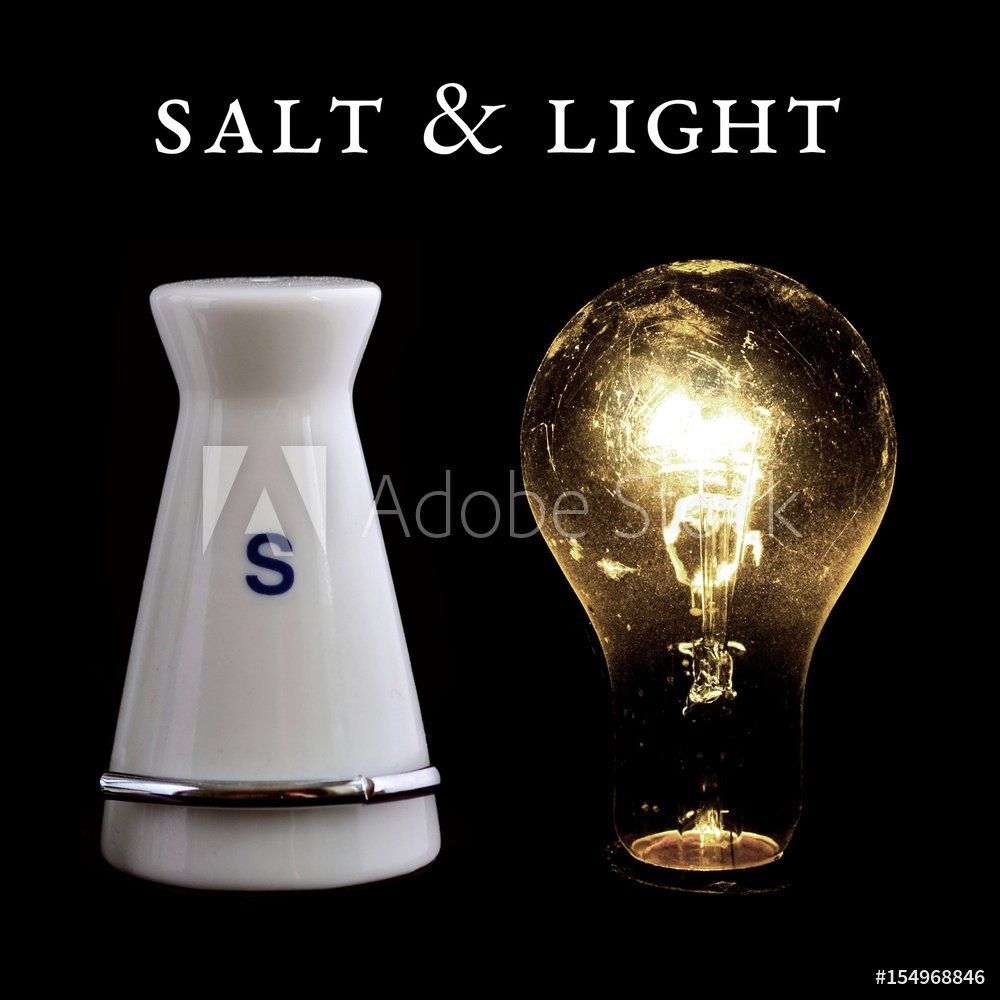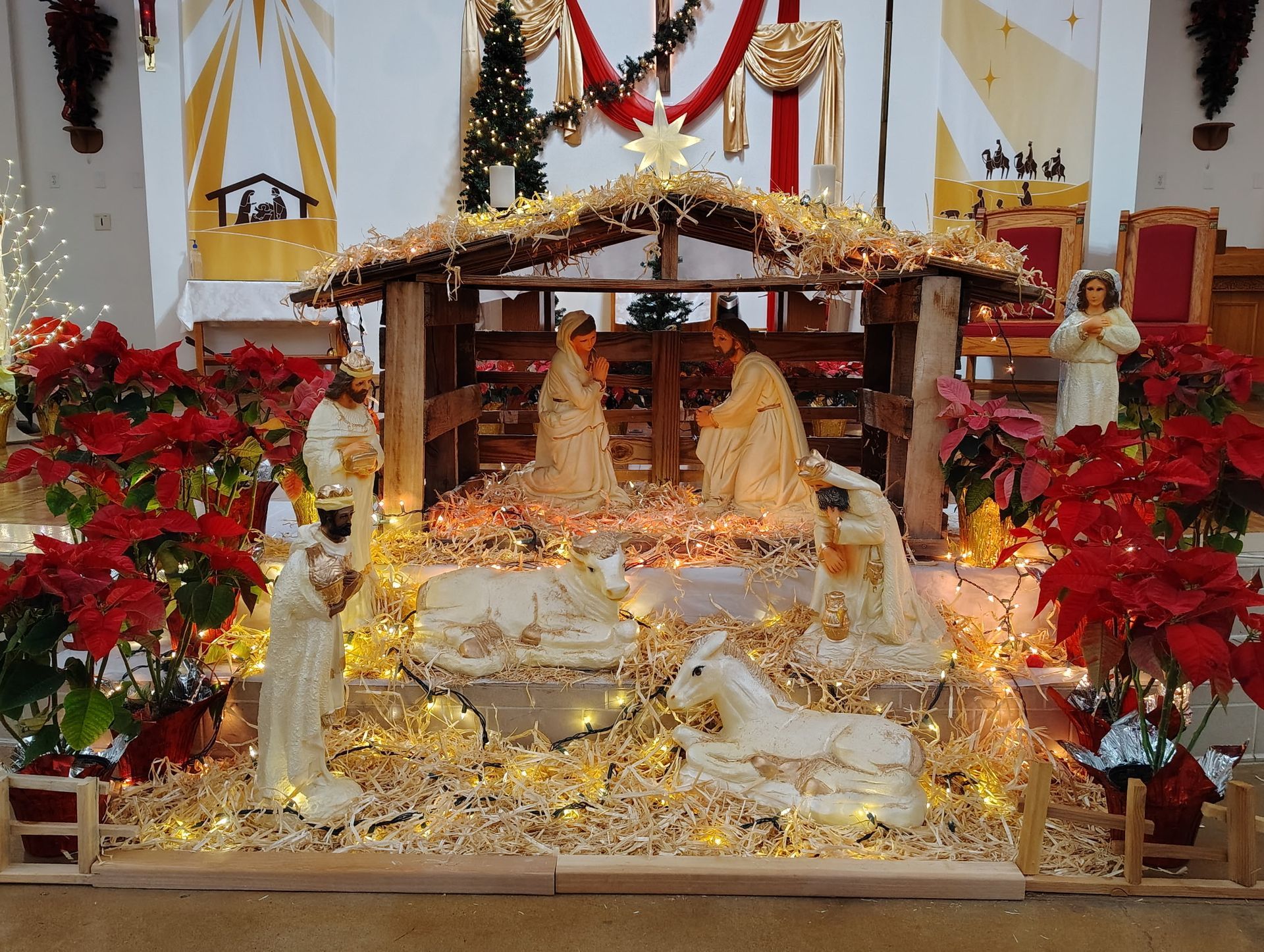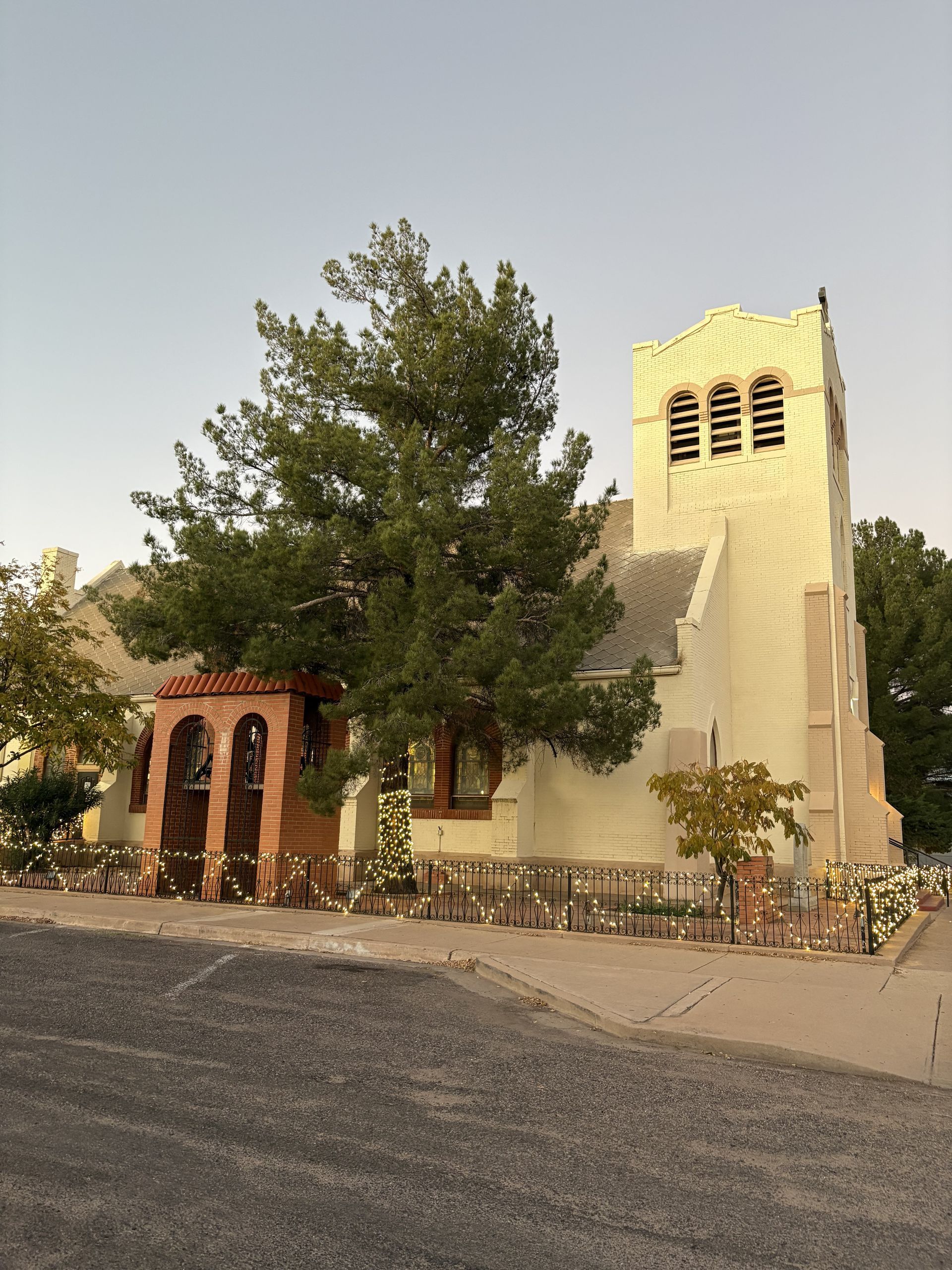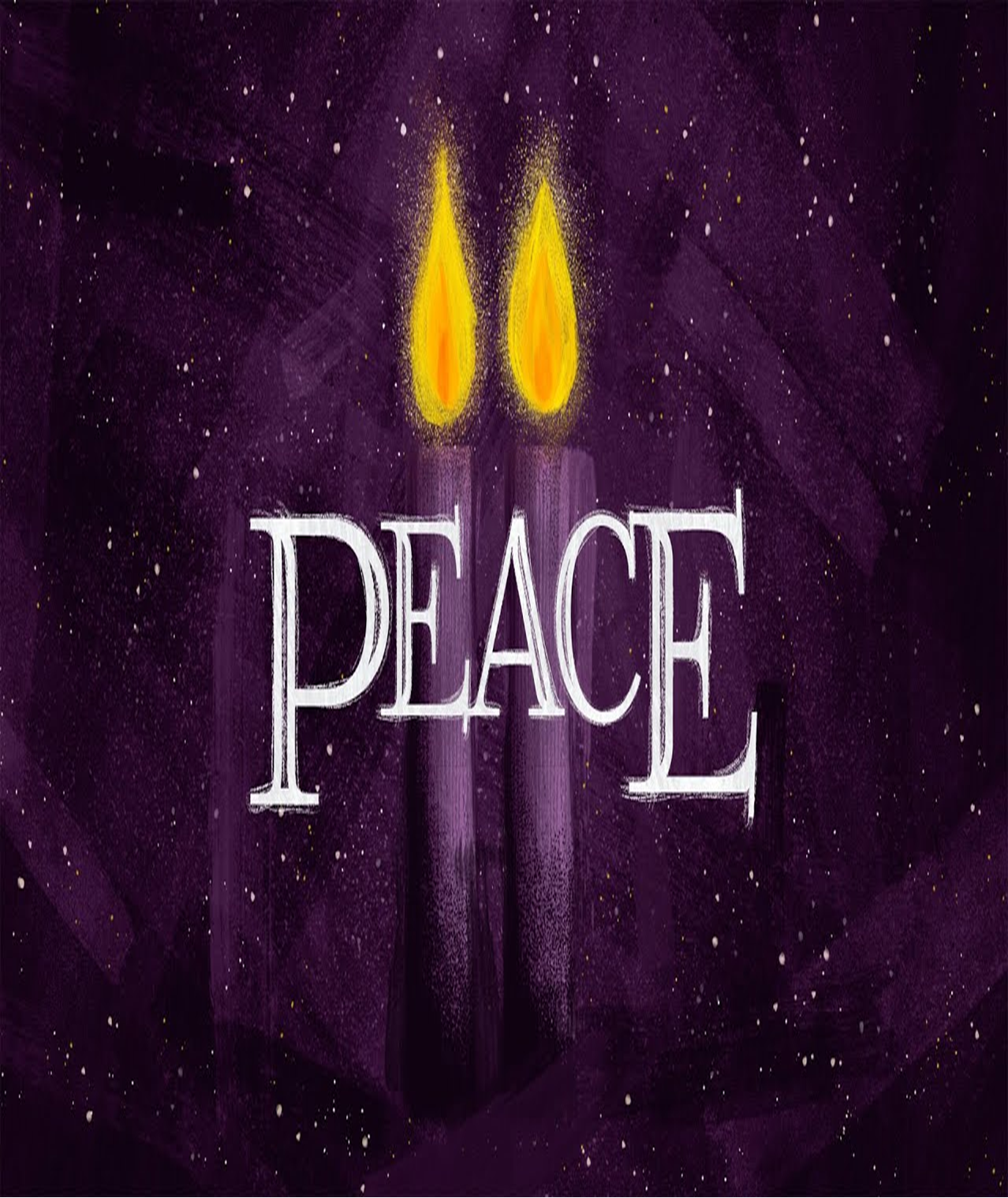What a relief as Jesus employs the metaphors of salt and light to describe what it means to be a disciple. In the ancient of days even now, salt is greatly valued, nicknamed 'divine' because of its many uses which cannot be overemphasized. With its crystal glistening sparkling white, iodized or not, it's known as the purest and most useful of all things to offer sacrifices, to preserve raw meat/fish and for seasoning. In restaurants and food chains, it occupies the center piece of the table along with black pepper, soy sauce, ketchup, cilantro, lime, salsa, chili hot sauce, picante...etc...
Jesus exhorts his followers that they must be perfect examples of purity and modesty against a morally corrupt, dwindling and drifting society. Just as salt is used for preservation, they must prevent a godless, soul- less world (claiming there's nothing beyond the physical universe) from decay, from getting rotten by greed and immorality. Just as salt is used for seasoning, Christians must add distinctive flavor with giddy excitement to life, act as diffusers to joy, to enliven, to season, purpose-driven service, mission-oriented ministry, bring energy and enthusiasm to a tired, worried, distressed and declining congregation. The Mass must put smiles on our faces. We are diffusers of joy, dispensers of happiness to those who find it, messengers of hope, providers of love to those deprived of it. If we cease to bring joy, if we stop putting life, then we invite disaster. A story is told about the first Christians being trampled at the door of the church if they cease to do their job of bringing joy to others.
Jesus addressed his followers directly with the words, "You are the salt of the earth. But if salt loses its taste, with what can it be seasoned? It is no longer good for anything but to be thrown out and trampled underfoot." Christianity is a risky and dangerous business in the sense that there’s no middle ground. There’s no gray area. It’s either you are a Catholic or you are not. If salt loses its taste, it’s good for nothing. By the same token, if we don’t bring goodness to the world, then we are worthless and the world suffers.
Light is meant to be seen- to be visible. It is also used as a guide that serves as a warning-for danger ahead. If you see something, say something. If you know someone's life/manner of living is eating that person alive and is going down the slope, you have to come to the rescue and have the courage to tell that person even if it hurts. I've heard stories about people from all stages in life saying they would never have done such a terrible thing if they were well informed and received support through the kindness of individuals. It can be very effective if it's done always out of love and charity and not in anger, judgment and condemnation.
What is the goal of good works? How come we do what we love to do? The creed we professed Sunday after Sunday doesn't stop at the church's door but must be lived and applied out in the ordinary, not for vanity or ostentatious display. Our humble attempt at living the beatitudes, our words and languages, our work ethic and behavior, are meant to reveal the father. We engage in good works by providing food, shelter and clothing not because we want the needy to feel good about themselves nor for our own benefit and spiritual wellbeing. We perform them that people see the Father in us. There is no such thing as secret discipleship. Religion may be personal but not private. The essence of Christianity is to glorify the heavenly father.
"You are the light of the world. A city set on a mountain cannot be hidden. Nor do they light a lamp and then put it under a bushel basket; it is set on a lamp stand, where it gives light to all in the house. Just so, your light must shine before others, that they may see your good deeds and glorify your heavenly father" (Mt. 5: 17-18).
FIRST READING
"Thus says the Lord" is quite a familiar phrase which usually appears at the beginning of a text but seen and heard, sounds less appealing mostly in quick reading. However, the mere fact that Isaiah starts off with what God says, he wants his hearers to know that the message comes from God and not his own. The bible is not just a piece of literature inscribed for inspiration, it’s divinely authored. The Prophet powerfully presents one of the most perplexing moral questions of all time on the quality of our worship stressing the need to share the basic human need: food, shelter and clothing to/with the needy. Failure to do so leaves a lot of evidence to the contrary. There was no mention of surplus. To share (paras) means to break in two regardless what you have and not wait until you get enough. A recent disturbing report says that the wealth of the 85 richest people in the world is equal to the 3.4 billion people combined. Whenever there's poverty, people lacking the basic necessities of life, something has gone wrong.
Therefore...Isaiah continues..."share your bread with the hungry, shelter the oppressed and the homeless; clothe the naked when you see them, and do not turn back on your own" (Isa. 58: 7). Our minds may probably be traveling miles ahead intent on giving away our garbage, the stack of slightly used slash like new, untouched, unopened items in original packaging still with the price tag in the garage. Or maybe, if you just want to get rid of a pile of clothes, wrap them in a plastic bag as the case may be, bring it on, drop it anytime. Your surplus may be someone else's treasure.
The Eucharist has a social dimension. It is inextricably linked with a duty to the needy even if we claim to be one with them. What happens in the liturgy (the work of the people) then is inseparably connected with the world. What we do afterwards is essentially a result of worship, an effect of what transpired in the Mass. To share then is a responsibility, not an option and nor a suggestion. If fulfilled, it brings joy, happiness, healing, favor, blessings and it is, by far, the most visible, credible, reliable evidence of our belief and communion with God. "Then you light shall break forth like the dawn, and your wound shall quickly be healed; your vindication shall go before you, and the glory of the Lord shall be your rear guard " (Isa. 58: 7-8). There's a price, there's a reward for selfless living. And yet, he doesn't end there. The second part illustrates additional social concerns which are expected of those who have committed to the Lord:
"Then you shall call, and the Lord will answer, you shall cry for help, and he will say: Here I am! if you remove from your midst oppression, false accusation and malicious speech; if you bestow your bread on the hungry and satisfy the afflicted; then light shall rise for you in the darkness, and the gloom shall become for you like midday" (Isa. 58: 9-10).
SECOND READING
In the second reading, Paul insists that his source of inspiration isn't human wisdom, neither to expose his resumé or cleverness of speech as many of them probably thought but Christ crucified. He was unassuming. He didn't presume he knew-it-all with full confidence turning things around. "For I resolved to know nothing while I was with you except Jesus Christ, and him crucified. I came to you in weakness and fear and much trembling, and my message and my proclamation were not with persuasive words of wisdom, but with a demonstration of Spirit and power, so that your faith might rest not on human wisdom but on the power of God" (1 Cor. 2: 2-5).




